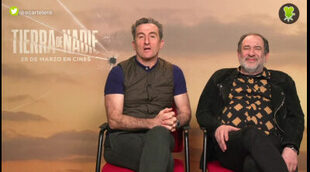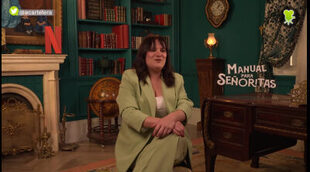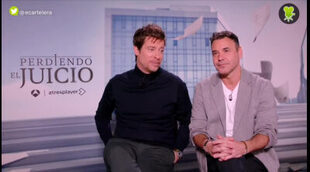"What do we do now?" Reese Witherspoon asked her audience at Glamour Magazine's 2015 Women of the Year Awards. "I dread reading scripts that have no women involved in their creation, because inevitably I get to that part where the girl turns to the guy and goes, "What do we do now?"" She made it clear that she has no time for poorly written female characters like these: "It's ridiculous that a woman wouldn't know what to do."
-

-

-

-

-

-

The actress, producer and philanthropist may have risen to fame as America's sweetheart face of rom-com blockbusters, but she has since transformed into one of the most powerful and influential women in Hollywood and is taking a stand against this unrealistic representation of women in popular cinema.
So what did she do next? Witherspoon has played an integral part in the exposure of unequal gender representation in the film industry, becoming a leading voice in the movement fighting for diversity in women's roles. Upon realising the full extent of the problem, the actress declared, "It was time to turn to myself and say, what do we do now?" The answer, she explained, came from her own mother: "If you want something done, honey, do it yourself." And that is what she did; seeing a serious lack of well-developed female narratives in modern Hollywood, Witherspoon decided to create them herself.
In 2012 the actress decided to take matters into her own hands, merging her own small production company, Type A Films, with Bruna Papandrea's Make Movies in order to form Pacific Standards, a production company dedicated to telling women's stories on the big screen. Despite contrary advice from all sides, Witherspoon invested her own money in developing projects. She and Papandrea exploited their love of books and dedicated themselves to reading drafts of screenplays and novels written by women in order to find the stories they wanted to share. As we might have predicted from this real life Wonder Woman, the company found phenomenal success in the very first year of business, producing 'Gone Girl' and 'Wild', in which Witherspoon also starred. Not only did these films do astoundingly well in box office revenue, they were also nominated for a collective total of three Oscars.

Is that all?
After proving all the critics wrong who had told her that "there just wasn't a market for buying female driven material", Pacific Standard continued to search for and develop female driven projects, finally exploring the true diversity of women and their stories. But, of course, that was not all for Witherspoon; in 2016 she decided to expand her mission to share stories about women of different ages, races and occupations, and created a multimedia platform, Hello Sunshine, with Seth Rodsky which aims to reach out to the female audience through a variety of means in order to share authentic female-driven stories. This put an end to Pacific Standard but Papandrea continues to produce content with Witherspoon, like Golden Globe winning series 'Big Little Lies'. As well as involving itself in film production, the platform has outlets on Instagram and Facebook, which shine a light on gender equality in all industries, and have a collective following of nearly 500,000.
Part of the company's commitment to giving women's stories the recognition and audience that they deserve, comes in the form of producing various podcasts, including 'How It Is' and 'My Best Break-Up', as well as organising a book club. Reese Witherspoon herself recommends a new novel written by a woman every month, each featuring diverse female characters, and shares her thoughts of the book via the Instagram page, which has close to 1 million followers. Hello Sunshine have signed to produce films adaptations of several recent best sellers, including Gail Honeyman's debut sensation 'Eleanor Oliphant is Completely Fine' and 'Something in the Water' by Catherine Steadman. Witherspoon is also working with Apple on their new streaming platform, Apple TV+, which launches in autumn of 2019; her new productions 'The Morning Show', starring Jennifer Aniston alongside the very Witherspoon, and 'Are You Sleeping', starring Octavia Spencer, will begin streaming with the launch of the platform.
"No market for female lead projects"? Think again. It is clear that, exactly as Witherspoon said, stories with women at the centre "are not a public service project", as many critics seem to believe. With the success that Witherspoon has found in her new projects, these stories "are a big time, bottom line enhancing, money making commodity".
"If not me, who? If not now, when?"
It is almost as if Witherspoon took this question from Emma Watson's 2014 speech at the United Nations to heart; as well as fighting for the exposure and recognition of the diversity of women in popular media, Witherspoon also has been extremely vocal in the fight against the unequal treatment of women in the film industry. Deciding that it was time to confront gender inequality, she became a major spearhead in the TimesUp movement at the start of 2018. While the movement was a collaborative effort and many women in Hollywood hold a great deal of responsibility, Allison Janney ('I, Tonya') told ET that a great deal of the process began with Witherspoon: "It was emails and friends telling friends, and everyone getting to each other through Reese. A lot of friends, and [Reese's] friends, told their friends. It was sort of a network of women who found out."

Witherspoon shared her own shocking story of sexual assault in the industry, standing in support of other women who had spoken out in the #MeToo movement. In addition, in preparation for the 75th Golden Globe Awards last year, Witherspoon also commissioned artist Arianne Phillips to create the official TimesUp pin, which was worn by many celebrities that evening. This movement, of which Witherspoon has been an integral part from the beginning, has raised over $13 million to be used for a legal defence to protect women against sexual harassment in the workplace, and to seek legal castigation of companies who turn a blind eye to this harassment.
If anyone exists as living proof that women are capable of anything, it is Reese Witherspoon. This artist has not only built a career as a phenomenal actress, opened up the industry to the large scale exposure of diverse women's stories in mainstream cinema, and created a multifaceted online platform to promote better female representation, but she has also fought for the just treatment of sexually abused women in all industries. If you are looking for a true powerhouse role model, Reese Witherspoon has done it all.



